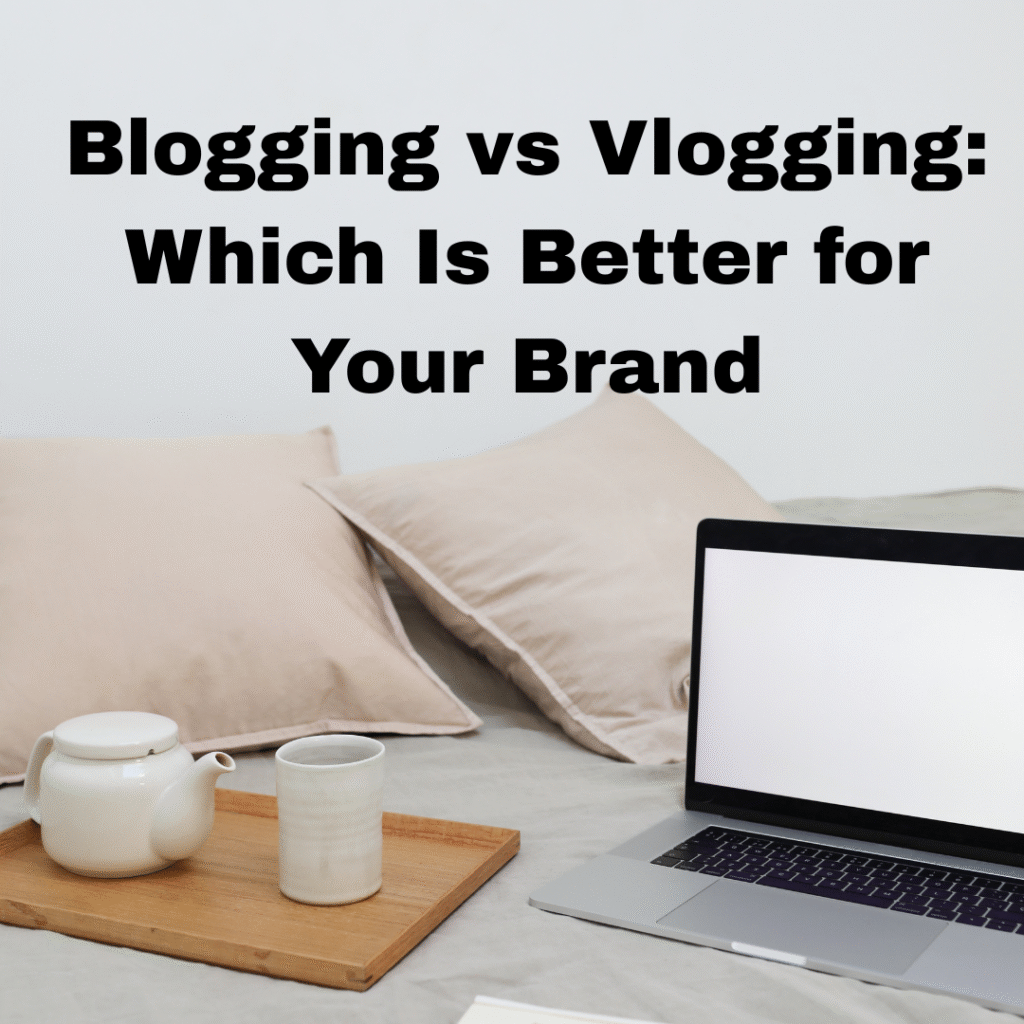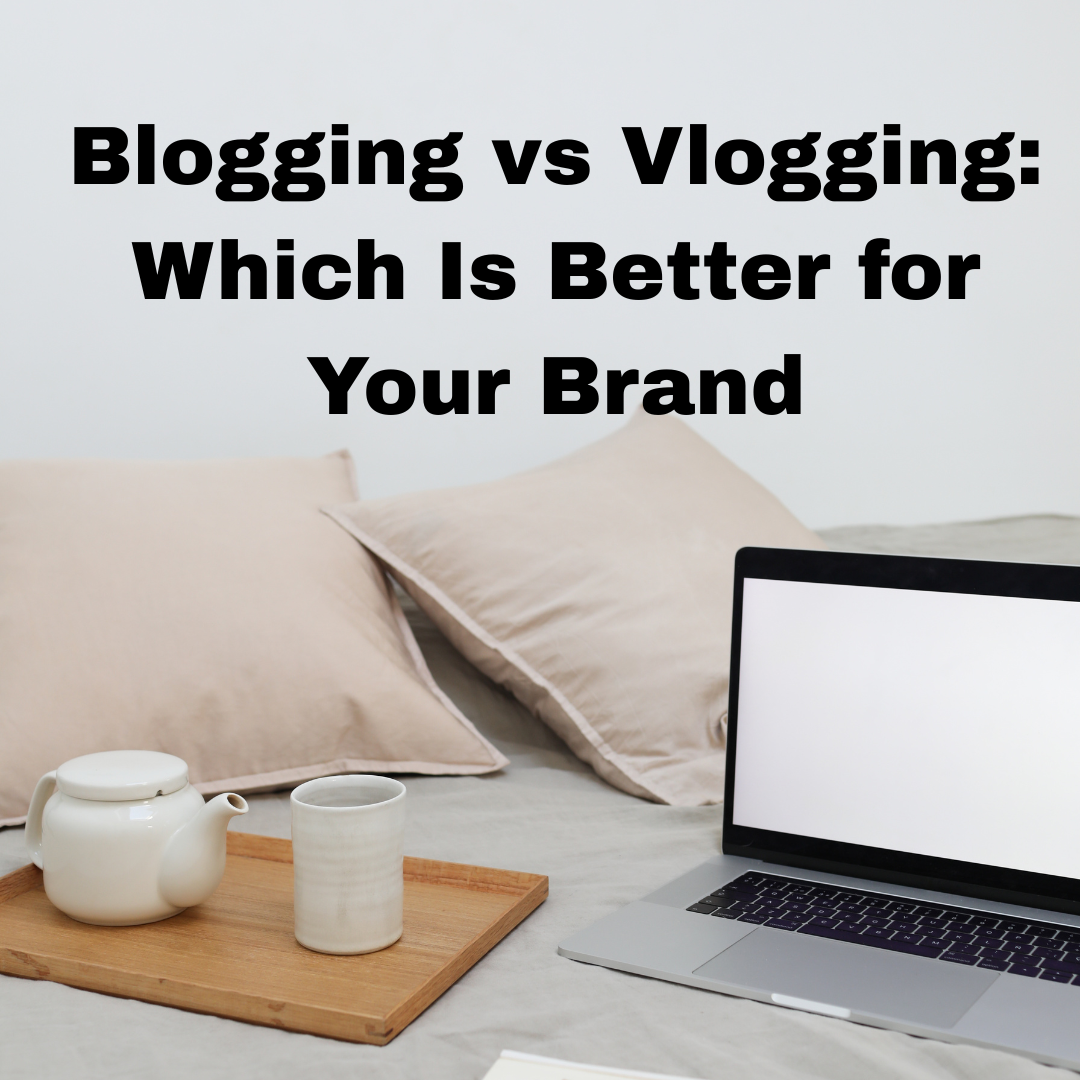Blogging vs Vlogging: Which Is Better for Your Brand?
The world of the digital world is now more than ever about creating a strong brand image. Companies and people always want to find out how to relate to their masses in the best possible ways, build credibility, and expand on their online presence. Blogging vs Vlogging: Which Is Better for Your Brand. Blogging and vlogging are two of the most popular content marketing strategies. Although these two approaches have been effective in reaching audiences in a way, they present different pros and cons.
What is Blogging?
Blogging refers to the act of writing and posting articles, post or any written materials on a web page. The blogs are usually aimed at delivering value in terms of informative, entertaining or learning written information that attracts a given target audience. Blogging has been a fundamental part of internet marketing since the early 2000s, as it allows brands to showcase their expertise, gain authority and ranking in search engines.
The pros of Blogging to Your Brand.
SEO Benefits: Blogging improves search engine ranking of your website by feeding it with fresh and keyword rich content which search engines are fond of. Optimized properly, blog posts can bring months or even years of organic traffic.
Exert Power and Believability: Coherent and quality blog content makes your brand a guru in your area of expertise and aids in gaining trust among your customers.
Answering to Multiple Formats: Blog posts may include various formats: how-to posts, listicles, case studies, opinion posts, and others, which gives them a creative freedom.
Long-Form Content Value: Blogs enable you to explore subjects in depth and provide customers with information on them that they may not otherwise discover elsewhere.
Ease of Distribution: Blog content could be easily reshaped into newsletters, social media posts and any other outlets used to carry out marketing.
Challenges of Blogging
Time-intensive: It takes time and efforts to come up with well-researched and polished blog posts.
Good Writing abilities are a Must: Not all people are accustomed to write and poor text can be damaging to your brand.
Rapid Intake: Blogs can be time consuming to get momentum and get an avid following.
What is Vlogging?
Vlogging or video blogging is the production of video content either telling stories, informing or entertaining the audience. Due to the existence of such platforms as YouTube, Tik Tok, and Instagram Reels, vlogging has become a popular activity. Videos integrate a visual, auditory and emotional appeal and are very engaging and shareable.

The advantages of Vlogging to Your Brand.
Increased Engagement and Conversion Rates: Videos have a higher level of attention capture and retention as compared to text resulting in increased engagement and conversion rates.
Creates Personal Relationship: Vlogging will provide you with an opportunity to display your personality and will help the audience to create deeper emotional attachment to your brand.
Comprehensive Content Formats: Vlogs have many forms, such as tutorials and behind-the-scenes shots, interviews, product demos, and so on, making their content fresh.
Mobile Audiences: Videos are very mobile-consumable, making them attractive to the mobile audience.
Better Brand Remembering: Video has better visual and audio ability to make viewers remember your brand.
Challenges of Vlogging
Resource-Intensive: To make quality videos, one needs equipment, knowledge of editing, and in most cases, more time than writing.
Needs Comfort On-Camera: Not all people are comfortable and at ease in front of the camera.
SEO Shortcomings: Video SEO is a growing field, but it tends to be less efficient than optimization of written text.
Blogging or Vlogging: Which is the best fit to your brand?
Consider Your Audience
It is important to know what your audience likes. There are other types of audiences who like reading in-depth articles to explore a topic. Some may prefer short and entertaining videos which can be viewed on a commute or a break.
Blogging might be a better option in case your audience is busy professionals who like to have an in-depth analysis.
Brand Personality Analysis.
Your content should reflect your brand voice/personality.
The brands that focus on the expertise and professionalism tend to be successful in blogging.
Vlogging on brands oriented on personality based marketing, lifestyle or entertainment do well.
Resources and Skills
Evaluate the resources you have.
Blogging may be a better thing to do in case you are a good writer, but you have poor video production skills.
Video production skills or the ability to invest in them are a potent tool of vlogging in case you or your team hold these skills.
SEO Effects: Blogging Vs Vlogging.
Vlogging, conversely, uses the rising popularity of videos. The videos are very captivating and have the likelihood of ensuring that your visitors spend more time in your site which is a good ranking factor. The second-largest search engines such as YouTube also offer an alternative way of discovering the brand. Video SEO, however, demands modification of titles, descriptions, tags, and transcripts, to enhance the visibility. Adding videos in the blog posts can also improve your content popularity and search engine optimization by encouraging people to interact with them.
Blogging SEO Benefits
Blogs enable accurate targeting of the key words in the content.
Text is easily indexed by search engines and this enhances your authority.
Blogs have the capability of attracting backlinks which increases the SEO of your site even more.
Vlogging SEO Benefits
Most social networks and Google itself prefer videos and can be found in rich snippets.
Video content will be able to generate traffic to your site through the use of YouTube and other video search engines.
Videos will promote more time taken by users in your site which is a sign of value to search engines.
Integrating Blogging and Vlogging for Maximum Impact
Most of the successful brands do not regard blogging and vlogging as mutually exclusive. It is possible to integrate the two to develop a strong content strategy that would help to achieve maximum reach and interaction.
Reduce Content: Reuse blog content to create video and vice versa in order to appeal to different audience choices.
Cross-promotion: Embed videos on blogs, drive more views to videos and embed detailed blog posts with videos.
Various Content: To meet the needs of various types of learning (reading vs. watching), it will be more user-friendly.
Last Reflections: Which one is superior to your brand?
Finally, blogging vs Vlogging: Which Is Better for Your Brand whether you blog or vlog will depend on your personal brand objectives, target, and capabilities. The online marketing environment is volatile, and flexibility has the potential to keep your brand viable and thriving.


